6.1: Dialogue
- Page ID
- 142307
Dialogue
Situation. Two girls, taking a leisurely stroll in Paris, stop to look at a mime. Both think he is talented, but only one drops a coin in his hat; the other saves her money for the local watering place.
Deux jeunes filles, Evelyne et Stéphanie, se balladent dans les rues de Paris.
| EVELYNE | Regarde, il y a beaucoup de gens devant ce bistrot. |
| STÉPHANIE | Qu'est-ce qui se passe? Allons voir. |
| EVELYNE | Oh! Il y a un mime. Regarde, il fait semblant de manger, mais il n'a rien dans les mains. |
| STÉPHANIE | C'est vrai, il n'y a ni table, ni chaise, ni assiette, ni fourchette, ni couteau, ni cuillère. |
| EVELYNE | Ce type a vraiment du talent. C'est dommage, il vient de finir. |
| STÉPHANIE | Et voilà qu'il passe son chapeau. Veux-tu lui donner un peu d argent? |
| EVELYNE | Oui, je lo trouve sympa, je lui donne cinq francs. Et toi? |
| STÉPHANIE | Pas moi. Je préfère dépenser mes cinq francs au bistrot. |
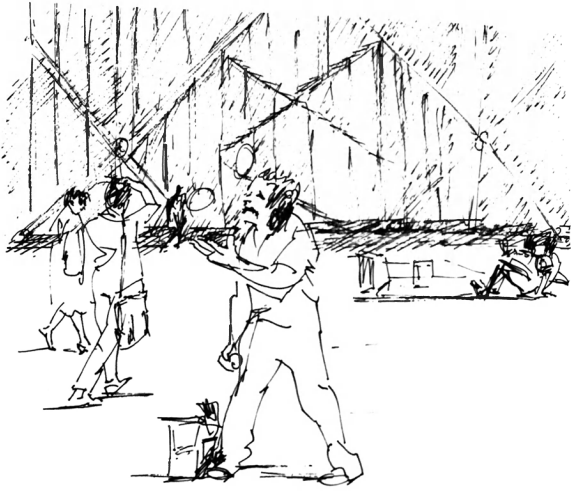
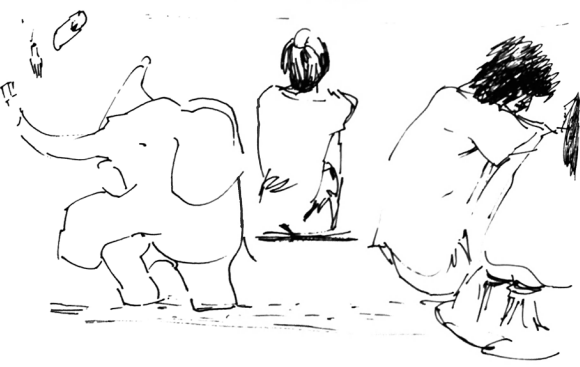
Figure 6.1.
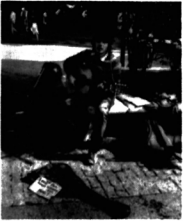
Exercice I
With one or more classmates, rewrite this dialogue. Be prepared to act it out in class; don't hesitate to include the entertainer if someone has the requisite talent or to change the activity of the street entertainer: a musician, a clown. (Some vocabulary hints: jouer d'une guitare/d'une flûte, un clown, maquillage.)
Questions et Réponses
A. What did you do yesterday? / l studied French.
- —Qu'est-ce que vous avez fait hier?
- —J'ai étudié le français.
- —J'ai fait mes devoirs.
- —Posez la même question è votre voisin(e).
- —Qu'est-ce que tu as fait hier soir?
- —J'ai étudié cette leçon.
- —J'ai ac heté une chaîne stéréo.
- —J'ai pris un bain.
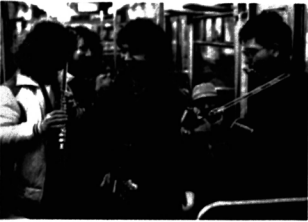
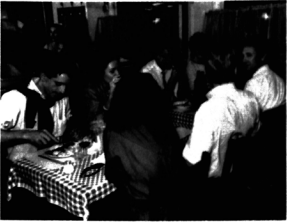
Exercice II
Make up your own more specific questions (using verbs other than faire, "to do") or just retain the model question, "Qu'est-ce que tu as tait hier?" and then—using just the verbs given below—make up at least 10 more answers. As you have noticed, you are asking what happened some time in the past, not what was going on or what the conditions were. You use a two-part form of the verb: the present tense of "have" plus a past participle—the same form as the present perfect in English. We give the past participles of some high-frequency verbs directly below:
| Regular -er verbs: | regarder | regardé |
| Regular -ir verbs: | finir | fini |
| Regular -re verbs: | vendre | vendu |
| Some irregular verbs: | apprendre | appris |
| avoir | eu | |
| boire | bu | |
| comprendre | compris | |
| écrire | écrit | |
| être | été | |
| faire | fait | |
| prendre | pris |
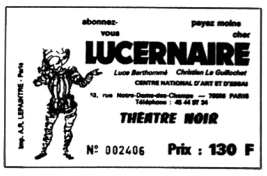
Grammar Notes: The large majority of verbs form the passé composé with the present tense of the auxiliary avoir, as in all the examples above. (For explanations, see Reference Grammar, 6.2.1, especially 6.2.1a.) Verbs that take être as their auxiliary appear in the next exercise.
B. Where did you go last year? / I went to Paris.
| —Où êtes-vous allé l'année passée? | teacher to student, m. |
| —Je suis allé à Paris. | |
| —Posez la même question à votre voisine. | |
| —Où es-tu allée l'été passé? | student to student, f. |
| —Je suis allée au Mexique. | |
| —Où êtes-vous allés hier soir? | teacher to group of students |
| —Nous sommes allés au match de basketball. |
Grammar Notes: Aller is one of the most common verbs that forms the passé composé with the auxiliary être. Aside from reflexive (pronominal) verbs—to be considered later in this course—there is a comparatively short list of verbs that, like aller, take être as their auxiliary. Some of them are introduced in the next exercise; for a complete list and explanations, see Reference Grammar, 6.2.1b.
C. When did you arrive? / I got here this morning.
| —Quand ètes-vous arrivée? | teacher to student, f. |
| —Je suis arrivée ce matin. | |
| —A quelle heure est-ce que Louise est partie? | |
| —Elle est partie à trois heures. | |
| —Quand êtes-vous entrés dans la salle? | teacher to group of students |
| —Nous sommes entrés dans la salle à dix heures. |
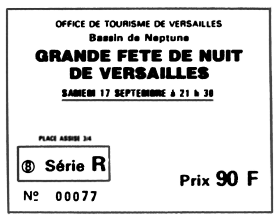
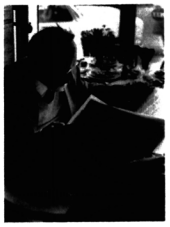
Grammar Notes: As you may have noticed or guessed, the past participle in an être verb + passé composé construction agrees in gender and number with the subject of the verb (Reference Grammar, 6.2.1b). At this point, we'd prefer that you focus on learning the list of useful verbs that take être as an auxiliary, and the order of the elements, rather than agreement rules.
FINIR, to finish, (CHOISIR, to choose; OBEIR, to obey)
| Je finis mes devoirs. | I'm finishing my homework. |
| Tu finis toujours avant moi. | You always finish ahead of me. |
| Il obéit à ses parents. | He obeys his parents.1 |
| Nous finissons à six heures. | We finish at six o'clock. |
| Vous choisissez le petit sac? | You choose the little bag? |
| Elles finissent la leçon. | They're finishing (the lesson). |
| Passé composé: j'ai fini, ... | |
| Imparfait: je finissais, ... | Futur proche: je vais finir, ... |
| Futur: je finirai, ... |
1 Note that obéir takes an indirect object ("Il obéit à ses parents"), whereas the English equivalent takes a direct object rH e obeys his parents"! Quite a few f renc h verbs have this c ontrasting pattern See Reference Grammar. 27.1.
BOIRE, to drink
| Je bois un coca. | I'm drinking a coke. |
| Tu bois de l'eau? | You're drinking water? |
| On boit beaucoup de vin ici. | They drink a lot of wine here. |
| Nous buvons de la bière. | We drink beer. |
| Vous buvez seul? | Do you drink alone? |
| Elles boivent du thé. | They're drinking tea. |
| Passé composé: j'ai bu, ... | |
| Imparfait: je buvais, ... | |
| Futur: je boirai, ... | Futur proche: je vais boire, ... |
Exercice III
In this and the following exercise, we ask you to complete sentences in which a past event is mentioned first. In this set, complete the thought by saying what happened next, as in the model. Finally, in sentences 6-8, we ask you to provide your own beginning to the sentence; mention some event (personal, imagined, local, national, or international) that interests you.
| Model | Quand vous avez donné cette explication, ... |
| Quand vous avez donné cette explication, j'ai décidé de rester ici. |
- Quand le prof a expliqué cette leçon, Louise...
________________________________________________________ - Quand elle est entrée dans la salle, je...
________________________________________________________ - Quand le téléphone a sonné, le directeur...
________________________________________________________ - Quand ils ont frappé à la porte, nous...
________________________________________________________ - Quand nous sommes arrivés au lardin du Luxembourg, les enfants...
________________________________________________________ - ________________________________________________________
- ________________________________________________________
- ________________________________________________________
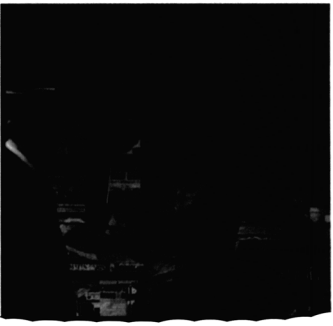
Exercice IV
We provide the same set of cue sentences as we did for Exercice III, but this time we want you to complete them with a background statement—what X was doing or what was going on when the event took place. The event, again, is in the passé composé; your background statement will be in the imparfait. For the last three sentences, you provide an event, as you did in Exercice III; you may use the same ones but are not required to do so.
| Model | Quand vous avez donné cette explication, ... |
| Quand vous avez donné cette explication, j'étais absente. |
- Quand le prof a expliqué cette leçon, Louise...
________________________________________________________ - Quand elle est entrée dans la salle, je...
________________________________________________________ - Quand le téléphone a sonné, le directeur...
________________________________________________________ - Quand j'ai frappé à la porte, tu..., n'est-ce pas?
________________________________________________________ - Quand nous sommes arrivés au lardin du Luxembourg, les enfants...
________________________________________________________ - ________________________________________________________
- ________________________________________________________
- ________________________________________________________
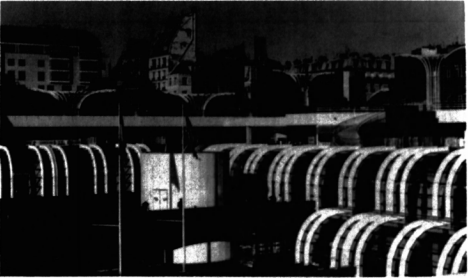
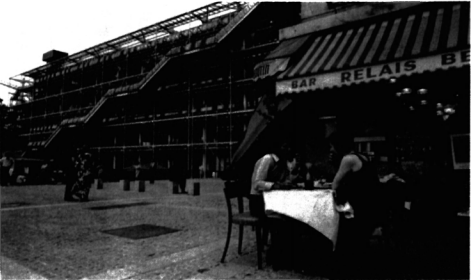
Lecture
The following passage is one of the shorter episodes in Le Petit Prince, by Antoine de St.-Exupéry. Remember, as always, to read the passage first rapidly, then somewhat more slowly, trying to guess words you don't know. Don't look up any words until you've tried to understand the passage without using the dictionary, and please don't write in translations. Start reading well ahead of the day for which the reading is assigned, and read it at least four times.
By the way, whether or not you have already read this excellent story in translation, you ought to find an evening to read it in French. As you'll see from this excerpt, it is not difficult—and it is certainly worth the time you will devote to it.
Situation. Having decided, for personal reasons, to leave his own small planet, the Little Prince visits a number of planets before reaching Earth. At each one he meets an interesting character...
| La planète suivante était habitée par un buveur. Cette visite fut02 - très courte mais elle plongea0 le petit prince dans une grande mélancolie: | 0 was 0 plunged |
| —Que fais-tu là? dit0-il au buveur, qu'il trouva0 installé en silence devant une collection de bouteilles vicies et une collection de bouteilles pleines. | 0 said/found |
| —Je bos, répondit0 le buveur, d'un air lugubre. | 0 replied |
| —Pourquoi bois-tu? lui demanda0 le petit prince. | 0 asked |
| —Pour oublier, répondit le buveur. | |
| —Pour oublier quoi? s'enquit0 le petit prince qui déjà le plaignait. | 0 inquired |
| —Pour oublier que j'ai honte, avoua0 le buveur en baissant la tête. | 0 confessed |
| —Honte de quoi? s'informa0 le petit prince qui désirait le secourir. | 0 asked |
| —Honte de boire! acheva0 le buveur qui s'enferma0 définitivement dans le silence. | 0 concluded/shut himself |
| Et le petit prince s'en fut0, perplexe. | 0 went away |
| Les grandes personnes sont décidément très très bizarres, se disait-il en luimême durant le voyage. |
2 You need not worry about this past tense form (fut) as far as producing it is concerned, but we'll give you many opportunities to recognize it. It is the so-called "book tense" equivalent of the passé composé. and you'll find it in most reading passages. (Reference Grammar, 6.2.3. Remember, you have only to learn to recognize it.) All occurrences of the passé simple are glossed in the margin.
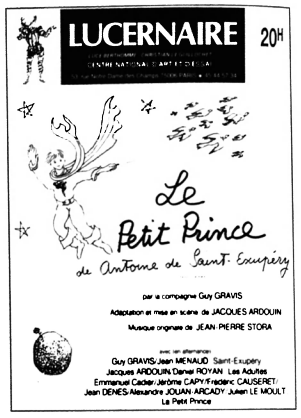
Common and Uncommon Knowledge
Last reminder: you should be able to find the answers to these questions in easily available reference works, but we urge you to use the Petit Larousse most of the time.
- Was Paris the first city to have an underground local transportation system? In Paris, they call it the métro, in New York City, they call it the subway.
- Why is the area on the left bank of the Seine, around the Sorbonne, called "le quartier latiri''?
- Name four railroad stations and two airports that serve Paris. Airport names appear in the newspapers and magazines fairly frequently. The names of the gares are all on maps of Paris, including métro maps.

Vocabulaire
NOMS
| un an | year (as in counting years) |
| une année | year (the duration, the period) |
| une assiette | plate |
| un bistrot | bar, café, bistrot |
| une chaîne | chain |
| une (chaîne) stéréo | stereo (set of components) |
| un couteau | knife (table knife) |
| une cuillère | spoon |
| une décision | decision |
| l'est (final -t is pronounced) | east |
| une fourchette | fork |
| gens, m. | people (indefinite group) |
| des jeunes gens | young people, youth |
| le monde | world |
| l'ouest (final -t is pronounced) | west |
| un pécheur | sinner |
| un pêcheur | fisherman |
| un tour (cf. une tour) | tour |
| le travail | work |
VERBES
| boire | to drink |
| choisir | to choose |
| convertir | to convert |
| dépenser | to spend |
| entrer | to enter |
| expliquer | to explain |
| finir | to finish |
| gagner | to win |
| interroger (s'interroger) | to interrogate, ask, interview |
| manger | to eat |
| obéir (à) | to obey |
| partir | to leave |
| se passer | to take place, happen |
| plaire (past participle: plu) | to please |
| renoncer (à) | to give up |
| voir3 | to see |
3 Voir is given only in the infinitive form here. It will be taken up in Chapter Ten.
ADJECTIFS4
| différent | different (pl. = various) |
| entier, -ère | entire, whole |
| seul | alone |
4 We do not give the feminine form of the adjective when it is simply a question of adding an -e ending. If there is some other change, we indicate how to form the feminine.
ADVERBES
| bientôt | soon |
| évidemment | obviously |
| moins | less, least |
| au moins | at least |
| de moins en moins | less and less |
| partout | everywhere |
| surtout | especially |
PREPOSITIONS
| avant | before (temporal) |
| devant | before, in front of (spatial) |
| pendant | during, for (with a time period) |
MISCELLANEA
| (c'est) dommage | (it's) too bad, unfortunate |
| faire semblant (de) | make believe (for comprehension) |
| il y a + time unit + past tense | ago |
| il y a deux ans | two years ago |
| il vient de finir | he just finished |

